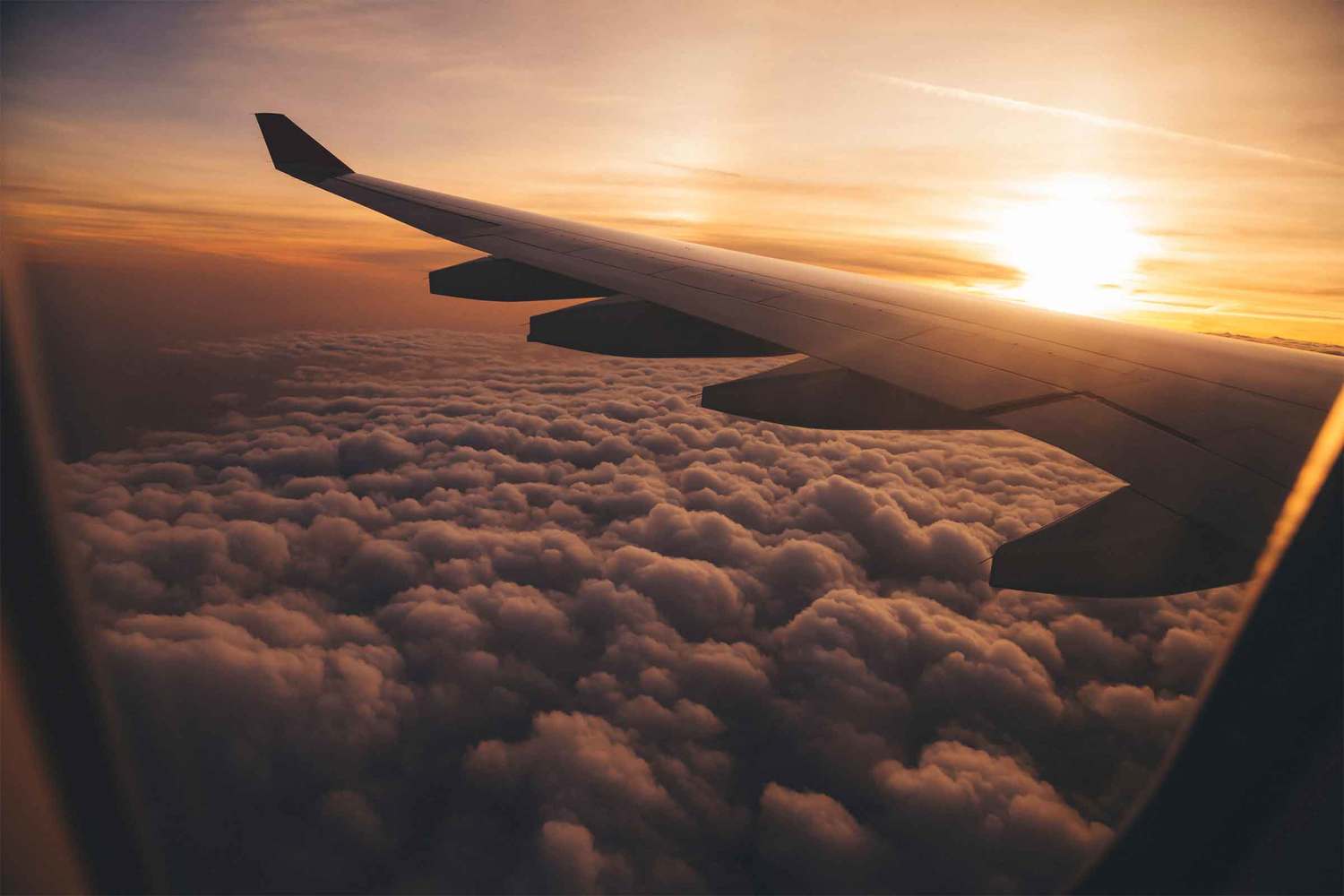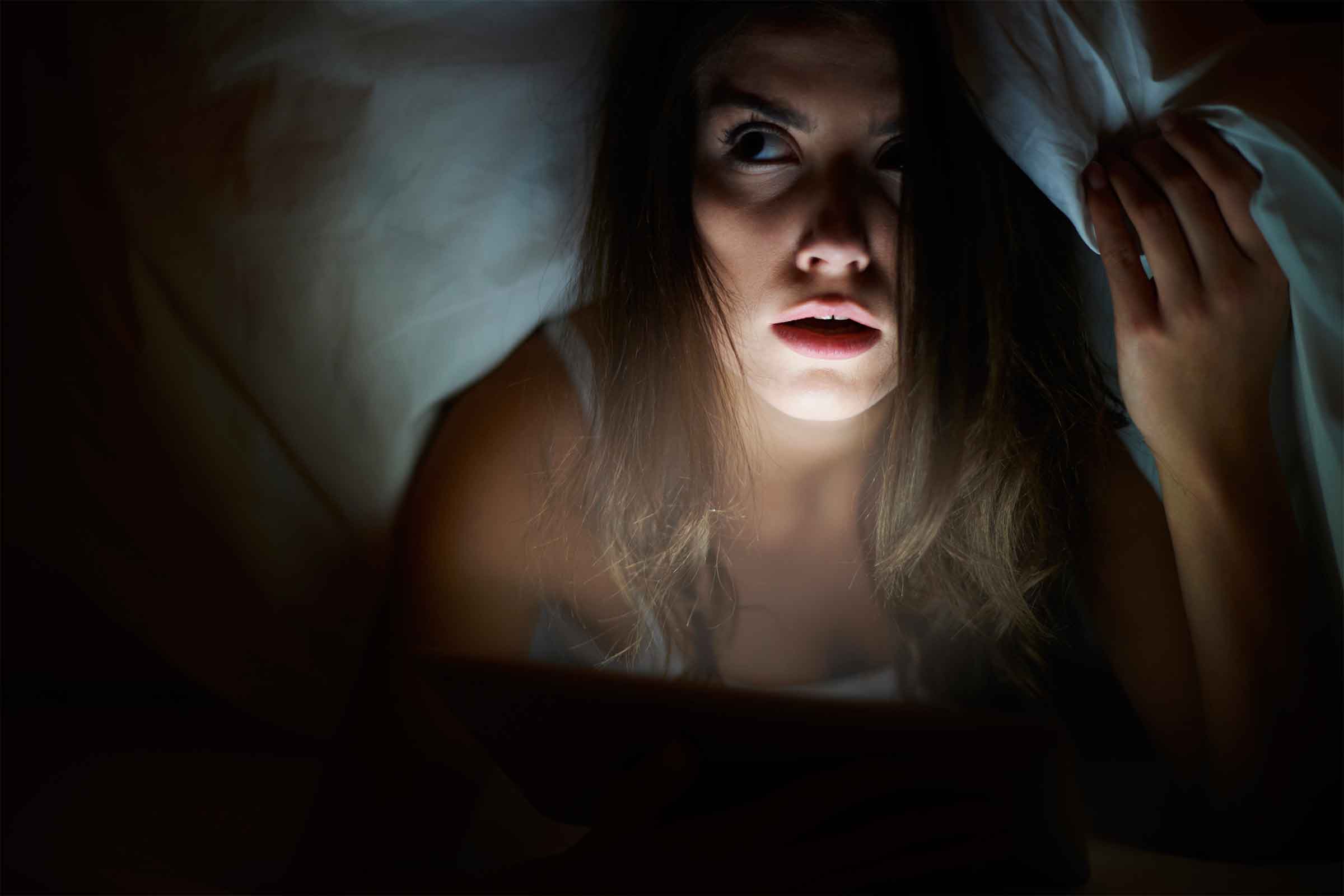It’s OK to freak out this Halloween—it can even be healthy for you.
Go ahead and get spooked!
‘Tis the season for spooks and spirits, spine-chilling stories and hair-raising horror movies. And while we typically tend to give fear and fright negative connotations, it actually turns out that they’re not so bad after all. In fact, they may be reaping you health benefits. (If you love being scared, check out these 2 sentence horror stories!) “Fear, or getting scared, is an emotion that’s part of our biology as human beings, just like other emotions such as sadness, joy and anger,” says Steve Orma, PsyD, clinical psychologist and author of Stop Worrying and Go to Sleep: How to Put Insomnia to Bed for Good. “It serves a purpose that’s crucial to our ability to survive.” Here are six solid reasons to increase the spook level on your scare meter this Halloween.
Being scared alerts you to harm

This might be the most obvious reason, but it’s definitely the most important. “Fear is our internal alarm bell for danger,” says Dr. Orma. “Without the ability to feel fear, we wouldn’t live very long because we wouldn’t be aware of, or care about, the threats around us.” When we get scared, our bodies react physically so we can handle the danger, also known as our fight-or-flight response. This response gets triggered when we perceive some danger or threat to ourselves. “Without the fear response when we’re in dangerous situations, we wouldn’t have the energy, strength, focus or speed to fight or flee,” says Dr. Orma. If a car is racing toward us, our fear gives us the ability to react in a split second and jump out of the way. Without the fear, we would get hit.”
A little fear can help you live life to the fullest

When we fear something, we have a choice: We can let the fear stop us or we can face the fear and conquer it head-on, expanding the possibilities and opportunities in our life. “Being afraid of something can alert us to an area in our life that we’re limiting ourselves or avoiding, for example a fear of rejection which causes us to avoid dating,” says Dr. Orma. “By facing this fear, and conquering it, we have the ability to attain a rewarding romantic relationship.” The same goes for more physical and external fears, like the fear of flying. But if we face the fear, and muster up the courage to step foot on an airplane, we can travel the world. “Being scared has the psychological effect of ‘putting life in perspective,’ thus serving as a great coping mechanism,” says John, Mayer, MD, leading practicing psychologist, author and expert on violence. “Seeing scary things gives us the sense of: ‘Wow! My life and what I’m dealing with is really not that bad after all.’” By facing fears in areas that are limiting us, we expand our experience and potential for success because nothing can stop us. If nothing can stop you, you’ll be able to create the life you want or get very close, and that will be extremely rewarding. You’ll also have fewer regrets.
It can be beneficial for your career

Fear can be immobilizing, but it can also be motivating—especially when it comes to your workload or professional goals. “Many people need that adrenaline rush of the eleventh hour whether it’s to tackle a project at work or a write a paper on deadline,” says Debbie Mandel, MA, stress-management specialist, radio show host and author of Addicted to Stress. “It also helps you delegate and be part of a team.” (There are actually a surprising amount of benefits of stress.) According to evolution, we’re tribal, which makes sense that in a work setting we need members of our tribe or team to help us survive that scary saber tooth tiger that is hitting certain goals. And the acute stress that accompanies fear is also good for you, because it keeps you vigilant and wakes you up to perform better as in public speaking or simply waking up in the morning! (These magic phrases can help you nail public speaking.) “Cortisol levels rise in the morning to wake you up from a prolonged period of sleep,” says Mandel.
It can be fun

Many people scare themselves deliberately—and not just around Halloween. They watch horror movies (these are the scariest movies of all time), go skydiving, ride roller coasters, risk rejection by asking someone out for the thrill of getting a “yes,” and the list goes on. “Fear makes us feel alive and know we are stepping outside our comfort zones, which is exciting,” says Dr. Orma. The excitement generated can also help alleviate depression by the increase in norepinephrine (adrenaline), which in turn increases arousal, excitement and glucose (converted into energy). “Being scared takes us completely away from our everyday worries and depressions,” says Dr. Mayer. “It’s nearly impossible to be thinking of our pressures and worries when we’re experiencing fear or feeling scared. It works like an eraser for the mind.”
Fear helps us socialize and become closer to people

“The hormone oxytocin has been associated with ‘prosocial’ behavior, making us want to bond with others and seek out the comfort of others,” says Dr. Mayer. “The classic image of people huddling together on the couch while watching a scary movie or hugging at a theatre are perfect examples.” Ever wonder why we tend to talk about our experience of being scared with others and share our collective fear? Blame it on oxytocin. “When scared, the body releases oxytocin, which can help people become closer and bond,” says Kris Kendall, who has a Ph.D. in exercise physiology. “The brain’s survival instinct is to pair with another human, or humans, to increase chances of survival.” Consider this your incentive to head to movies or a visit a haunted house as a means to bond with family, friends, or your significant other.
Originally published at www.rd.com


